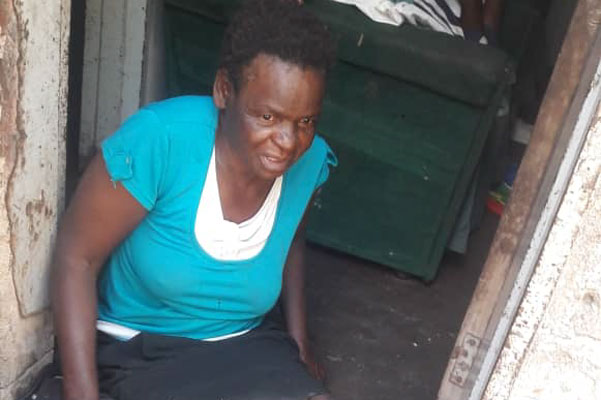
SIXTY-EIGHT-year-old Miriam Munkuli has not known happiness since the death of her husband eight years ago.
BY NOKUTHABA DLAMINI

Besides the devastating death of two of her children, Munkuli has been struggling to put food on the table and often sleeps on an empty stomach.
As if that is not enough, six months ago she was severely burnt after stepping on burning coal as she was going to relieve herself at night in a nearby bush.
The dilapidated Hwange Colliery Company Limited (HCCL) lodgings where she stays with her grandson do not have proper ablution facilities.
It was during one of the trips to answer the call of nature that Munkuli literally jumped from the frying pan into the fire.
“Since my husband died in 2010 life has been extremely difficult for me. I have no one to look after me,” the frail woman said as she narrated her ordeal.
“Two of my children have since died and I stay with my grandson who dropped out of school,” Munkuli said.
- Chamisa under fire over US$120K donation
- Mavhunga puts DeMbare into Chibuku quarterfinals
- Pension funds bet on Cabora Bassa oilfields
- Councils defy govt fire tender directive
Keep Reading
“I was injured sometime in May after stepping on hot coal at the open mine shafts that are on the surface.
“I was walking to the bush to relieve myself because the toilets are shared by the whole compound and there is no water.”
She added: “I stepped on hot charcoal with my left foot. I sat down because the pain was excruciating and ever since the incident I have not been able to walk or get treatment.
“The wound is not healing and my whole leg feels paralysed and my foot has developed sores.”
Munkuli said her grandson was now doing the household chores and the family was living in fear of being evicted from the house owned by the mine.
“The company has been sending us summons to vacate the place. But where will we go since they never gave me my husband’s benefits, who served the company for a long time?
“What he left us with is what we still use and things like a television set, radios and stoves have broken down.
“My fear is that I will die too without getting his benefits and my grandson will become destitute with no one to take care of him.”
Munkuli is not the only widow suffering because of the struggling HCCL’s failure to pay families of its dead workers their benefits.
Bibi Chingulu (46), a mother of four whose husband, an assistant engineer, died in 2013, said her family was living under constant threats of eviction by the giant miner from their Makwika village home.
“Since my husband’s death in 2013, I have been victimised, and told to vacate the company house with my minor children,” she said.
“Whenever I go to their offices to present my case, they ill-treat me and chase me away claiming that they paid all the benefits,” Chingulu said.
“I never signed for anything nor was I consulted concerning the payments.
“One of my sons had to quit school to become a bus conductor while the other one who finished his Form 4 in 2015 has been sitting at home because I have no money to pay outstanding school fees in order for him to get his results.”
Chingulu used to survive on selling detergents, but has since stopped due to the prevailing economic crisis in the country.
She believes prospects of life changing for the better at the colliery diminished a fortnight ago when the government placed HCCL under administration.
Her fears are also shared by many wives of colliery workers who have had to resort to desperate measures such as spending many cold nights outside the mine’s gates to force management to pay their husbands.
Margaret Mpofu, whose husband works at the colliery, said the developments at the mine were unsettling.
“Our husbands are owed salaries amounting to thousands of dollars and what makes us doubt the scheme of arrangement is that workers are yet to get their September and October salaries,” she said.
“Such frustrations forced us to march to the company offices in 2013.
“I was badly injured in the process as police officers were set on us to beat us. I was tripped and I fell on my head against a rock.
“I lost consciousness and spent months in hospital where I got 10 stitches [for a cut].”
Mpofu said the spouses of colliery employees had suffered a lot fighting for the rights of their husbands.
“During those protests, the police forced other women to roll on a railway line in the scorching heat as they beat them up,” she said.
“It was the same case with this year’s protests between January and May. We were arrested for camping by the gate demanding our husbands’ salaries. So even if they invest in the mine, no salary will ever come.”
Thobekile Ncube, who led the protests, said the company should consider clearing the salary backlog as a priority during the reconstruction.
The colliery employees’ families and surviving spouses of deceased workers live under deplorable conditions, especially at the Madumabisa and Makwika compounds.
A number of houses have no running water and the ablution facilities are dysfunctional.










